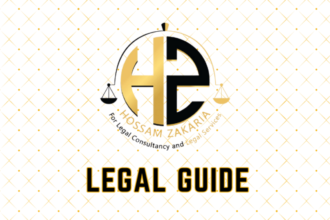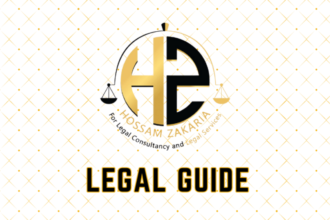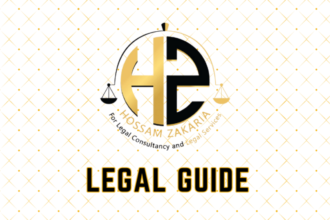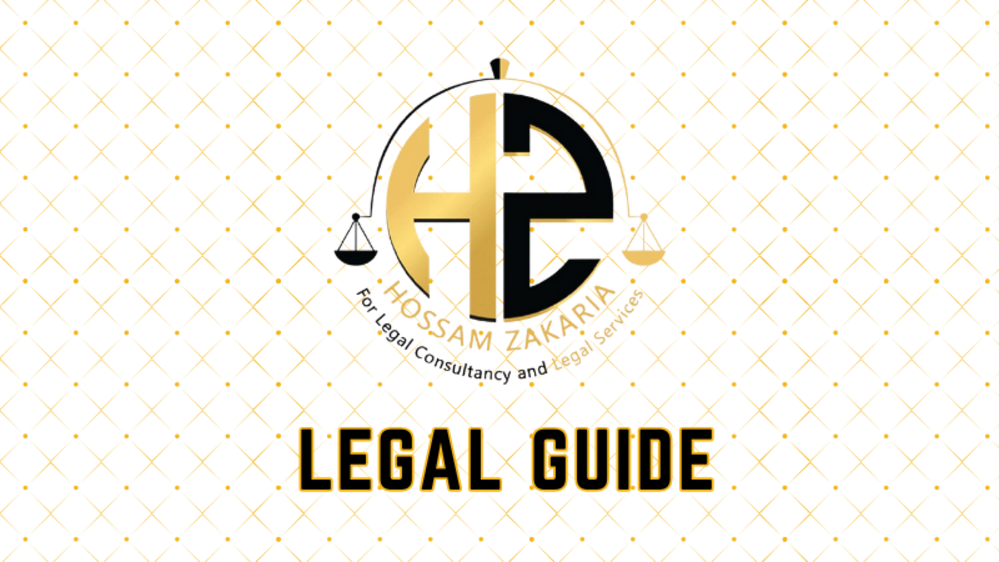Empowering Qatari Enterprises with AI-Driven Compliance Management: Legal Insights for 2025 and Beyond
In an increasingly interconnected and digitally transforming Gulf region, compliance management has taken on unprecedented significance. As regional economies, particularly Qatar and the UAE, embrace artificial intelligence (AI) to drive efficiency and innovation, the legal landscape is racing to keep pace. Businesses operating in Qatar and the UAE in 2025 face complex obligations—ranging from the newly enhanced anti-money laundering (AML) regulations and evolving data protection regimes, to sectoral requirements and cross-border compliance mandates. This article, prepared by senior legal consultants in the UAE, offers a comprehensive, consultancy-grade analysis aimed at Qatari enterprises seeking to implement or refine AI-driven compliance management systems. Throughout, we reference the latest updates from UAE Federal laws, Ministerial Guidelines, and GCC best practices, guiding organisations to remain proactive, competitive, and fully compliant in the changing legal environment of 2025 and beyond.
Why This Matters: Legal and Business Context for UAE and Qatari Stakeholders
The accelerated adoption of AI tools in compliance management brings tangible value: reduction in manual errors, improved monitoring for regulatory adherence, and rapid response to legal updates. However, as regulatory scrutiny intensifies and legal requirements increasingly demand robust, tech-enabled compliance, failure to properly implement and transparently govern these systems can lead to severe liability, enforcement actions, and reputational harm. This article not only interprets the latest regulatory frameworks but also delivers real-world consultancy insights, risk analysis, and operational strategies tailored to the needs of Gulf enterprises.
Table of Contents
- Overview: UAE Law 2025 Updates and GCC Compliance Evolution
- Integrating Artificial Intelligence in Regulatory Compliance Systems
- Key Laws, Decrees, and Regulatory Requirements Impacting Compliance
- Compliance Risks, Liabilities, and Implementation Challenges
- Practical Application: Case Studies and Hypotheticals for Qatari Enterprises
- Practical Strategies and Best Practices for 2025 and Beyond
- Conclusion and Forward-Looking Guidance
Overview: UAE Law 2025 Updates and GCC Compliance Evolution
The Current Legal and Regulatory Landscape
Within the Gulf region, compliance management is governed by a series of interconnected legislative instruments, enacted both nationally and through GCC-wide harmonisation efforts. UAE Federal Decree-Law No. 45 of 2021 on Personal Data Protection and its associated Cabinet Resolution No. 83 of 2022, for example, set a regional benchmark for data governance. In parallel, Qatar implemented its Law No. 13 of 2016 on Protecting Personal Data Privacy, with further updates in 2023 intensifying transparency and technological oversight requirements. Likewise, both countries have enacted robust AML regimes, with the UAE’s Federal Decree-Law No. 20 of 2018 on Anti-Money Laundering and Combating the Financing of Terrorism, coupled with Executive Regulations, forming the backbone of compliance expectations.
AI as a Compliance Enabler within Regional Law
AI-driven compliance management platforms leverage advanced analytics, natural language processing, and continuous monitoring to support organisations in real-time adherence to complex, frequently changing regulations. However, under Federal Decrees and Ministerial Guidelines, such as those released by the UAE Ministry of Justice and the Ministry of Human Resources and Emiratisation, deployment of AI tools must itself comply with principles of accountability, accuracy, and transparency. Thus, legal teams must structure AI adoption not merely for operational convenience, but to align with the strictures of regional law.
| Area | Old Regulation (Pre-2020) | Updated Regulation (2021-2025) |
|---|---|---|
| Personal Data Protection | Data protection patchwork, minimal penalties | Federal Decree-Law No. 45/2021, express data subject rights, high penalties, detailed obligations |
| AML | Manual KYC, sporadic reporting | Decree-Law No. 20/2018, AI-supported AML, continuous transaction monitoring, enhanced reporting |
| Corporate Governance | Fragmented sectoral codes | Unified Codes, technology neutral, ERM and AI integration recognised |
Integrating Artificial Intelligence in Regulatory Compliance Systems
AI Capabilities and the Legal Compliance Lifecycle
AI technologies are transforming how companies meet regulatory duties. The compliance lifecycle—spanning risk assessment, controls implementation, monitoring, internal reporting, and external engagement—is increasingly managed through AI-driven platforms. Below, we describe how AI can be lawfully and effectively embedded across key compliance functions:
- Risk Identification and Assessment: AI systems process regulatory updates, financial data, and external news to flag emerging compliance risks as required by Ministerial Guidelines on Risk Management.
- Realtime Monitoring and Surveillance: Automated transaction monitoring is now a standard under Executive Regulations for AML/CFT, flagging suspicious activity per Article 15 of Decree-Law No. 20/2018.
- Policy Maintenance and Regulatory Change Management: AI tools can update internal policies in line with real-time changes to Federal, Cabinet, or Ministerial regulation, an increasing expectation reflected in the UAE Government Portal Advisory Circulars.
- Data Privacy and Subject Rights: AI-supported requests-handling for access, rectification, and deletion of personal data under UAE’s PDPL or Qatar’s DPL Law No. 13/2016.
Legal Prerequisites and Consultant Guidance
While AI enhances auditability and scalability, legal practitioners must ensure the following, per Cabinet Resolution No. 83/2022:
- AI decision-making processes must be auditable, with logs kept for at least five years.
- Human oversight is required for final regulatory filings or enforcement responses (Article 19, Federal Decree-Law No. 45/2021).
- Transparency protocols must be established to provide evidence in the event of regulatory investigation (see MOJ Compliance Bulletins).
Key Laws, Decrees, and Regulatory Requirements Impacting Compliance
1. Federal Decree-Law No. 45 of 2021 on the Protection of Personal Data
This law, and its implementing Cabinet Resolution, specifies that organisations must maintain stringent controls over personal data, including data processed or accessed by AI systems. Practical implications include:
- Mandatory Data Protection Impact Assessments (DPIAs) for AI solutions that process sensitive or cross-border data.
- Obligation to obtain informed and explicit consent from data subjects if AI profiling is conducted—especially relevant for employee surveillance or customer analytics.
- Incident reporting within 72 hours of breaches involving AI-enabled data processing platforms.
2. Federal Decree-Law No. 20 of 2018 on Anti-Money Laundering
With AI-based monitoring now endorsed by Emirati and Qatari regulators, organisations must:
- Integrate AI solutions into their transaction monitoring and suspicious activity reporting (per Article 15 and 17).
- Document and audit all AI-detected alerts, ensuring escalation to human compliance officers as prescribed in MOJ Circular No. 12/2023.
- Conduct regular independent validation of AI systems to mitigate false positives/negatives, per risk assessment requirements (see Financial Intelligence Unit Guidelines).
3. Data Protection Requirements Under Qatari Law
Under Qatar’s Law No. 13 of 2016 (as amended), similar obligations now exist:
- Any deployment of AI to process individuals’ data must be disclosed transparently in privacy policies (Article 10 and 15).
- International sharing or cloud-based AI analytics may only proceed with prior authorisation, aligning with the updated GCC Data Transfer Directives of 2023.
Table: Legal Requirements for AI-driven Compliance (UAE vs Qatar)
| Requirement | UAE | Qatar |
|---|---|---|
| Consent for AI profiling | Explicit, PDPL Art. 9 | Explicit, DPL Art. 10 |
| Breach Notification Maximum | 72 hours | 72 hours |
| DPIA for AI | Mandatory for high-risk processing | Mandatory for high-risk processing |
| AI Model Auditability | Documented logs, 5 year retention | Documented logs, 5 year retention |
Compliance Risks, Liabilities, and Implementation Challenges
Key Risks Arising from Improper AI-Driven Compliance Implementation
- Regulatory Enforcement: Failure to validate AI compliance tools or respond to regulatory demands can result in fines, business restrictions, or criminal liability. For example, under the UAE Personal Data Protection Law, penalties reach up to AED 5 million per incident (Cabinet Penalty Table, 2023).
- Bias and Discriminatory Outcomes: Improperly designed AI systems risk violating the anti-discrimination articles of Federal Decree-Law No. 2/2015 in the UAE and similar provisions in Qatari law.
- Data Breach and Incident Liability: AI-driven platforms handling personal or transaction data must be protected with state-of-the-art cyber controls, in line with MOJ and Central Bank of the UAE guidelines.
- Third-Party Vendor Oversight: Use of external AI compliance vendors introduces supply chain risk, heightened by Ministerial requirements for vendor due diligence (see UAE MOJ Circular 18/2024).
Table: Enforcement Penalty Comparison on Non-Compliance
| Type of Breach | UAE (Max Penalty) | Qatar (Max Penalty) |
|---|---|---|
| Data breach without notification | AED 5 million | QAR 1 million |
| Improper AML screening | AED 2 million + business suspension | QAR 2 million + business suspension |
| Failure to audit AI decisions | AED 500,000 | QAR 300,000 |
Compliance Challenges Unique to Gulf Enterprises
- Multi-jurisdictional Enforcement: Many Qatari businesses operate regionally, necessitating compliance with both UAE and Qatari regulations and harmonised approaches across AI deployment.
- Rapid Regulatory Evolution: Law and regulatory guidance in the region evolves quickly, often leaving short transition windows for new technical or procedural requirements.
- Talent and Governance Gaps: There is continued demand for legal and compliance professionals with AI literacy, capable of effective oversight and regulator engagement.
Practical Application: Case Studies and Hypotheticals for Qatari Enterprises
Case Study 1: AI-Driven AML in a Qatari Financial Institution
A leading bank in Qatar implements an AI-based transaction monitoring platform, built to align with both UAE’s Federal Decree-Law No. 20/2018 and Qatar Central Bank AML regulations. The system automatically reviews transactions, flags anomalies, and generates suspicious transaction reports (STRs). A periodic audit discovers the algorithm is misclassifying certain high-risk transactions due to incomplete data integration from overseas branches. Upon regulatory review, the bank faces penalties for insufficient oversight, but mitigates liability by demonstrating a) prompt corrective measures, b) robust internal audit trail of the AI platform, and c) proactive disclosure and remediation measures. Lessons: Human oversight, early engagement with regulators, and documentation of AI decision-making are critical to reduce liability.
Case Study 2: Data Privacy AI Compliance in a Cross-Border Technology Firm
An international technology company, headquartered in Doha with operations in Dubai, deploys an AI chatbot for customer service, which processes significant personal data. Under Federal Decree-Law No. 45/2021, the company must conduct a DPIA, secure explicit consent in both jurisdictions for profiling, and ensure the ability to evidence compliance. Due to a failure to issue prompt breach notification following a technical data incident, the company is fined under UAE law but avoids greater sanctions due to the documented, traceable nature of its AI compliance system. Lessons: AI enhances compliance but cannot replace foundational legal protocols, timely incident response, and clear records.
Visual Suggestion: Compliance Management Flow Diagram
Suggested diagram placement here—showing stepwise AI-enabled compliance: legal update feed → risk analysis → control policy update → automated monitoring → issue escalation → human review → regulatory reporting.
Practical Strategies and Best Practices for 2025 and Beyond
Consultancy-Grade Compliance Roadmap
- Institutional Commitment: Compliance must be embedded as a board-level priority, with cross-functional teams involving Legal, IT, Risk, and HR (per UAE Corporate Governance Code, 2023).
- AI Governance Framework: Develop a documented AI governance policy—validating models, controlling data quality, and defining escalation protocols. Regularly review under board supervision (UAE Federal Gazette Guidance, Vol. 57, 2024).
- Ongoing Training: Deliver practical, periodic training covering both AI technology and legal obligations for all relevant staff, referencing MOJ and Central Bank compliance bulletins.
- Vendor and Third-Party Management: Apply enhanced due diligence for external technology providers by requiring contractually mandated compliance with local law and regular independent audits (see Cabinet Resolution No. 12/2022).
Practical Compliance Checklist (2025 Edition)
| Action Item | Reference Law/Guideline | Status |
|---|---|---|
| Conduct DPIA for all new AI compliance tools | Federal Decree-Law No. 45/2021 | [ ] |
| Validate and log AI decisioning processes | MOJ/Ministry of HR Circulars | [ ] |
| Obtain explicit consent for AI profiling | PDPL Art. 9 / DPL Art. 10 | [ ] |
| Document human oversight and escalation review | Cabinet Resolution No. 83/2022 | [ ] |
| Review and update vendor contracts for AI compliance | MOJ Circular 18/2024 | [ ] |
| Implement ongoing compliance training | Corporate Governance Code | [ ] |
Engagement with Regulators: A Proactive Stance
- Maintain open channels with the relevant ministries (UAE and Qatar) for pre-implementation review and ongoing reporting.
- Appoint a Data Protection Officer (DPO) or Compliance Officer with demonstrated technology expertise as the primary regulatory liaison.
Conclusion and Forward-Looking Guidance
The convergence of AI and compliance management is reshaping the regulatory environment—and the operational reality—of Qatari enterprises active in the UAE and wider GCC. Laws are now technology-neutral yet uncompromising, expecting not only technical excellence but legal accountability and transparent, auditable controls. As 2025 unfolds, those Qatari businesses that invest in robust AI-driven compliance platforms, guided by legal expertise and a proactive, documented compliance culture, will secure both regulatory certainty and competitive advantage.
Key Takeaways:
- AI offers powerful, real-time compliance capabilities but must be implemented within a transparent, auditable legal framework.
- Recent UAE and Qatari law updates (2021–2025) have significantly increased obligations and penalties in areas from data privacy to AML.
- Lawful AI adoption requires board-level engagement, regular staff training, robust vendor management, and ongoing dialogue with regulators.
Forward-looking enterprises should view compliance not as a constraint, but as an enabler of innovation and sustainable Gulf market leadership. Our legal consultancy team stands ready to assist organisations in customising, auditing, and future-proofing their AI compliance journeys for 2025 and beyond.



